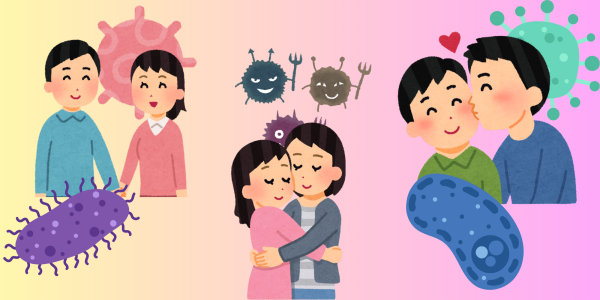The reality behind the most stigmatized form of contraception
Planned Parenthood is one of multiple health centers where many reproductive health concerns can be explored. The organization offers birth control, contraception, STD testing and much more for free or at a reduced cost.
Due to the personal nature of this subject, one source opted to remain anonymous and will be referred to as Source A.
One of the most effective forms of contraception is birth control — it is even in the name. However, its purpose goes beyond the prevention of pregnancy, helping people with various problems unassociated with conception. Many parents prohibit their children from using any kind of birth control due to the common belief that it is only used to lower the risk of pregnancy. In reality, it is often used as hormone therapy to treat or ease certain health problems.
“A lot of people believe that birth control is only used to prevent pregnancy or that people on birth control are too sexually [active],” TJ Buchanan (12) said. “[In reality], it is used for a variety of reasons, and you don’t need to be sexually active to take it in the first place.”
There are many forms of birth control, but most methods include the secretion of hormones in order to induce certain effects. Hope McClew (12) works at Planned Parenthood, one affordable option for those looking to begin treatment, and also uses birth control herself.
“Within birth control, there are hormones that create a thick mucus that makes it to where sperm can’t move,” McClew said. “There are certain methods that don’t use hormones, like the paragard IUD [intrauterine device] that I have. It’s made of copper, which is extremely toxic to sperm, so the cells will just die when they come into contact.”
With so many options available, many have a difficult time settling on one, often having to cycle through multiple different methods before they find one that caters to their needs and does not cause any additional problems. For McClew, a preference for a lack of hormones was what guided her to her decision.
“I decided on the paragard because it does not have any hormones,” McClew said. “Because it’s just copper, it doesn’t mess up my menstrual cycle or my psyche.”
Other than the paragard, there are four different kinds of IUDs approved for use in the U.S. These devices are inserted into the uterus and must be replaced after varying amounts of time. Unlike the hormone-free copper device, these IUDs utilize several hormones which have several functions. One use for these devices is to purposely prevent periods by thinning the lining of the uterus.
“I got an IUD in the hopes of stopping my cycle or at least to regulate it,” Source A said. “I actually ended up getting it removed because it did not work for my body and the side effects were too much for me to handle.”
Unfortunately, what sometimes complicates the process of selecting the right form of birth control is how each person’s body reacts. Buchanan originally only had the Nexplanon arm implant in an attempt to help with gender dysphoria by stopping their period and lowering risk of pregnancy. However, the implant on its own did not accomplish its purpose, so doctors started Buchanan on the pill method as well. These pills secrete hormones that stop ovulation and therefore the formation of eggs in the uterus, lessening the chances for a period or pregnancy.
“I liked the implant, but my periods before I started were irregular, and it made them worse,” Buchanan said. “I take birth control pills to help with keeping hormones balanced, which helps keep me off my period. Since I can’t start testosterone, birth control does a lot for me.”
While birth control has many benefits that attract patients, it definitely has a downside. In addition to the arduous selection process, the treatment can be demanding both physically and mentally. Many birth control methods demand consistent upkeep such as daily consumption or scheduled removal and reapplication, which if neglected, can reverse effects or create new ones. Even with proper care, there are many potential side effects, including weight gain or loss, depression or irregular periods and bleeding.
“The IUD made my cycle last the entire 6 months I had it, as well as causing cystic acne and depression,” Source A said. “I am open to trying other forms of birth control, though.”
Despite the potential side effects, birth control can work. Although it may take a while to find a good fit, it can prove to be beneficial. To begin birth control, an appointment with a doctor must be scheduled. Planned Parenthood, which is a nonprofit organization, can also administer various forms of birth control. With most medical insurances, the cost of many forms of birth control will be completely covered.
“All forms of birth control, including the IUD, are free at Planned Parenthood,” McClew said. “In Tennessee, when you’re 16, you don’t even need parental consent to begin birth control.”
Starting birth control is a big commitment, but if its advantages have enough appeal, it is worthwhile to try. Communicating with doctors, doing personal research and gaining a proper understanding of one’s body is imperative in order to fully understand which method is optimal. While multiple stigmas surround the use of birth control, many still believe that no matter what the reasoning for starting it is, making the best choice for one’s body and needs is not the business of anyone else.
“If you think birth control is the best thing for you, do it,” Buchanan said. “It does not matter how it makes other people view you. Starting birth control can be one of the most responsible things you can do for yourself.”
Your donation will support the student journalists of White Station High School. Your contribution will allow us to purchase equipment and cover our annual website hosting costs.








































